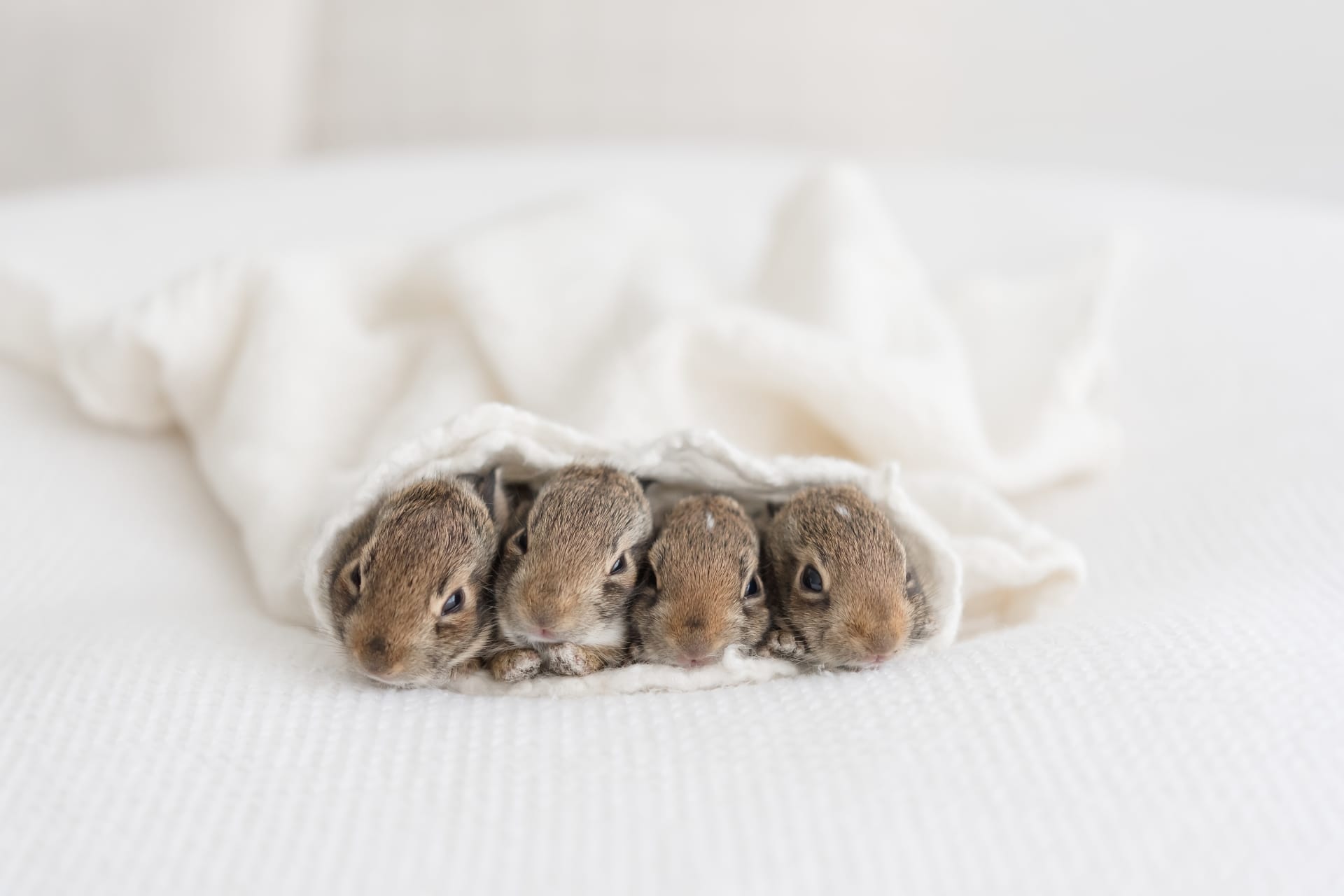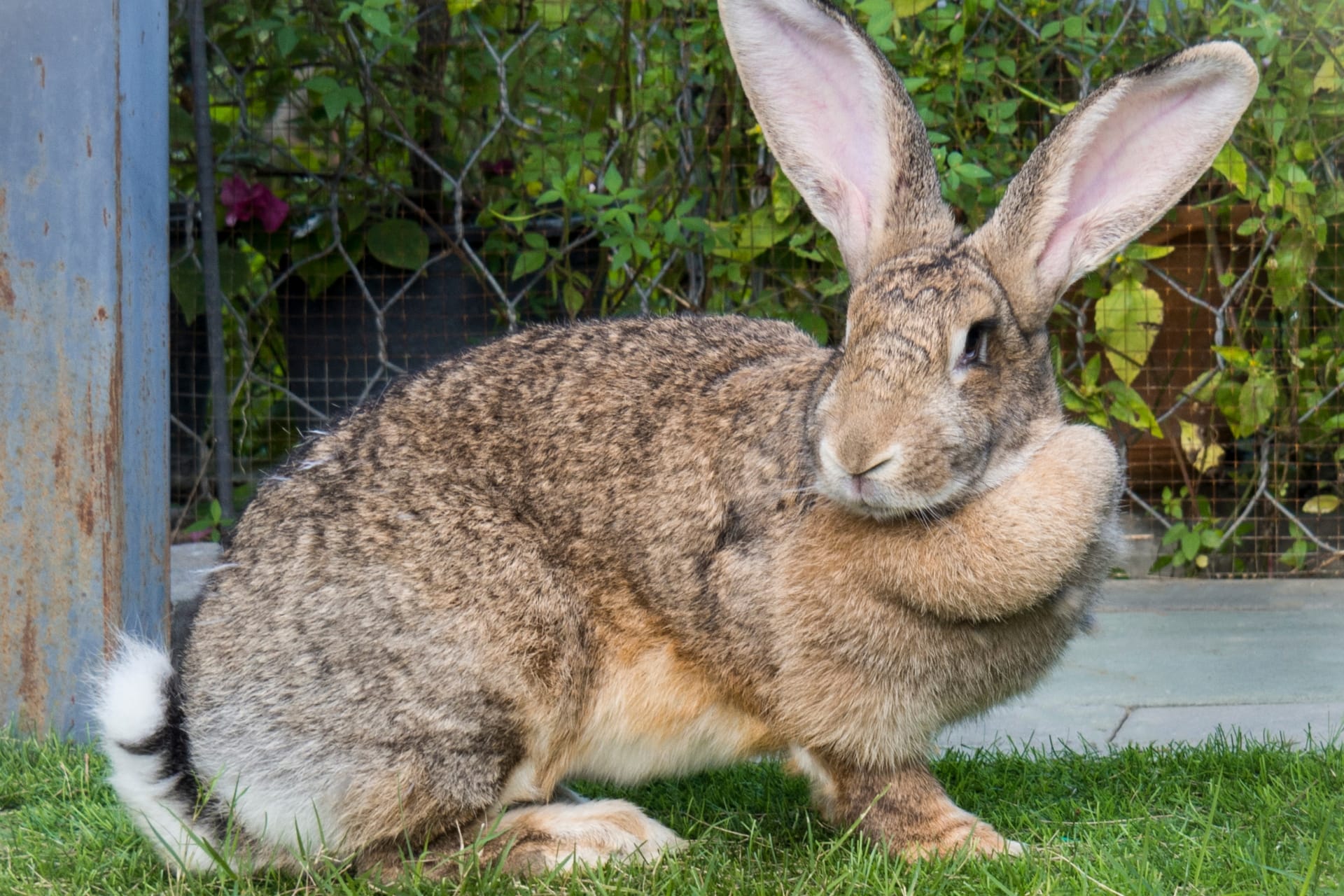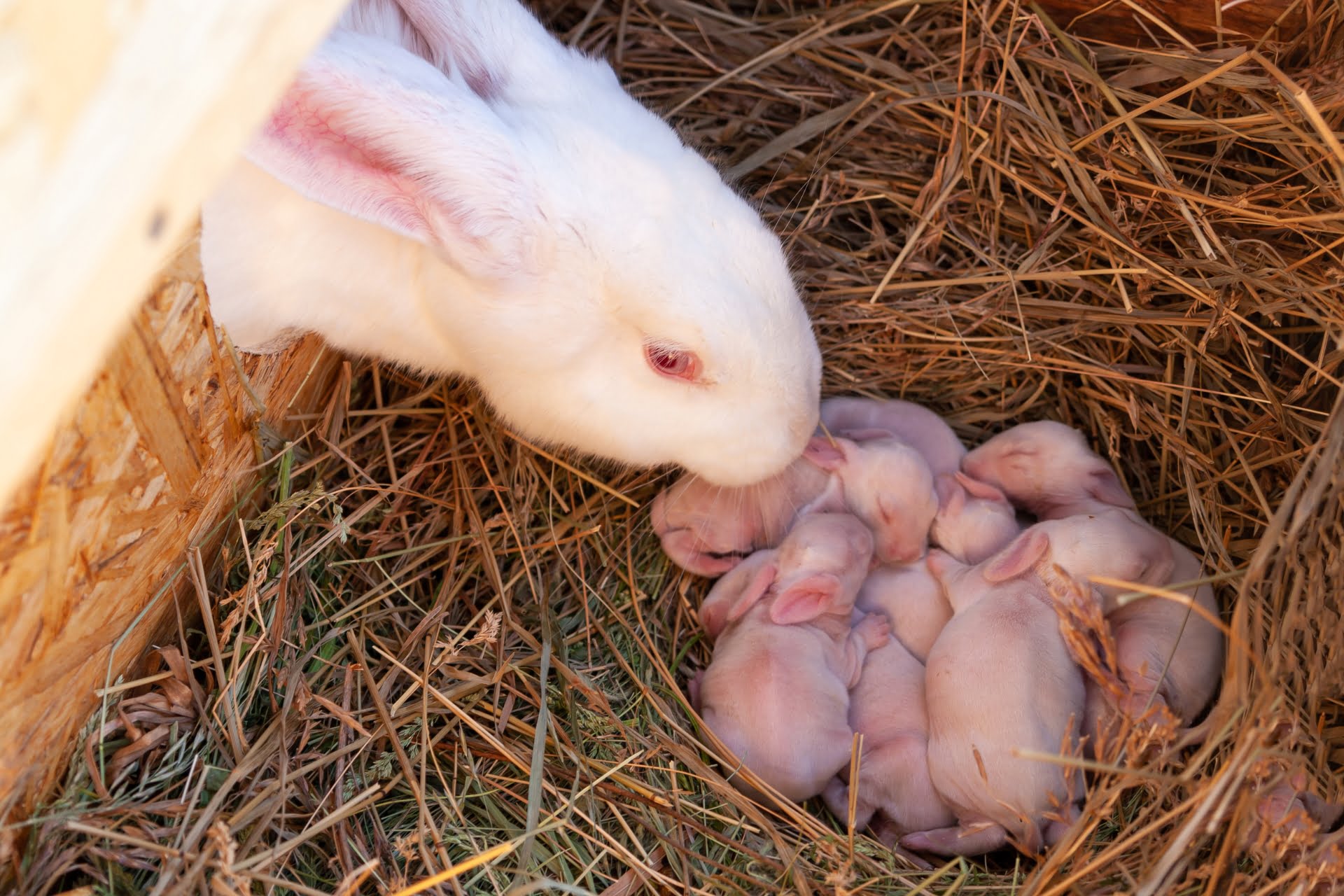Rabbit care requires time, effort, and dedication. By following the tips and guidelines outlined in this comprehensive guide, you can ensure that your rabbit receives the best possible care. Remember to provide a safe environment, balanced nutrition, regular grooming, exercise opportunities, and access to quality veterinary care. With proper care, your rabbit will thrive and bring joy to your life.
Contents
- Introduction
- Understanding Rabbit Care
- Creating a Safe Environment
- Feeding and Nutrition
- Grooming and Hygiene
- Exercise and Enrichment
- Health and Veterinary Care
- Bonding and Socialization
- Traveling with Your Rabbit
- Conclusion
- FAQs
Introduction
Keeping rabbits as pets can be a delightful and rewarding experience. These furry creatures make wonderful companions and can bring immense joy to your life. However, it is essential to understand the proper care requirements to ensure the health and well-being of your pet rabbit. This comprehensive guide will provide you with valuable tips and insights into rabbit care, covering everything from their basic needs to health maintenance and travel.
Understanding Rabbit Care
The Importance of Rabbit Care
Providing adequate care for your rabbit is crucial for their overall health and happiness. Rabbits have specific needs that must be met to ensure their well-being. Neglecting these needs can lead to various health issues and behavioral problems. By understanding the importance of rabbit care, you can create a loving and nurturing environment for your furry friend.
Basic Needs of a Rabbit
Rabbits, like any other pets, have fundamental needs that must be fulfilled. These needs include proper housing, nutrition, grooming, exercise, and socialization. By addressing these basic needs, you can ensure that your rabbit lives a happy and fulfilling life.
Creating a Safe Environment
One of the first steps in caring for your rabbit is providing a safe and suitable environment for them to thrive. Here are some essential considerations for creating a rabbit-friendly space:
Suitable Housing for Rabbits
Rabbits require adequate space to move around comfortably. Providing a spacious enclosure or hutch is essential. Ensure that the housing is secure, well-ventilated, and free from any potential hazards. This is all the more important in case your rabbit gets pregnant.
Providing Proper Ventilation
Proper ventilation is crucial for maintaining a healthy environment for your rabbit. Good air circulation helps prevent respiratory issues and keeps the enclosure fresh. Ensure there is sufficient airflow without exposing your rabbit to drafts.
Bunny-Proofing Your Home
Rabbits are curious creatures and love to explore their surroundings. Before allowing your rabbit to roam freely in your home, it’s important to bunny-proof the area. This involves removing any toxic plants, securing electrical cords, and protecting furniture and other items from chewing.
Feeding and Nutrition
A balanced diet is essential for the well-being of your rabbit. Providing the right nutrition ensures their growth, energy levels, and overall health. Here are some key points to consider when it comes to feeding your rabbit:
Balanced Diet for Rabbits
A rabbit’s diet should primarily consist of fresh hay, high-quality pellets, and a variety of vegetables. The right balance of fiber, protein, and essential nutrients is necessary for maintaining their digestive health.
Fresh Hay and Grass
Hay is a vital component of a rabbit’s diet. It aids in digestion, keeps their teeth healthy, and prevents obesity. Provide a constant supply of fresh hay, such as timothy or orchard grass, to ensure their dietary needs are met.
Appropriate Pellets and Vegetables
In addition to hay, rabbits require a small portion of high-quality pellets. These pellets should be specifically formulated for rabbits and not mixed with seeds or nuts. Alongside pellets, offer a variety of fresh vegetables, such as leafy greens and carrots, to provide additional nutrients.
Water Requirements
Clean and fresh water should always be available for your rabbit. Use a water bottle or a heavy bowl to prevent tipping. Regularly check the water supply and refill as needed to ensure your rabbit remains hydrated.
Grooming and Hygiene
Proper grooming plays a vital role in maintaining your rabbit’s health and appearance. Regular grooming sessions allow you to bond with your rabbit while keeping their coat and nails in good condition.
Regular Brushing
Brushing your rabbit’s fur helps remove loose hair and prevents matting. This is particularly important for long-haired breeds. Use a soft brush or comb to gently groom your rabbit, making sure to pay attention to the areas around their ears and hindquarters.
Nail Trimming
Regular nail trims are necessary to prevent overgrowth and discomfort for your rabbit. Use pet nail clippers or seek assistance from a veterinarian to ensure a safe and proper trim. Take care not to cut the quick, which is a sensitive part of the nail.
Dental Care
Rabbits have continuously growing teeth, and dental issues can be common. Providing appropriate chew toys and a diet rich in hay helps wear down their teeth naturally. Regular dental check-ups by a rabbit-savvy veterinarian are important to detect and address any dental problems.
Exercise and Enrichment
Regular exercise is essential for keeping your rabbit physically and mentally stimulated. Engaging in activities and providing enrichment opportunities will prevent boredom and promote a happy and healthy rabbit.
Importance of Exercise
Rabbits are naturally active animals and need space to hop, run, and play. Encouraging daily exercise not only helps them maintain a healthy weight but also strengthens their muscles and promotes overall well-being. Bigger breeds need more movement.
Encouraging Play and Exploration
Provide your rabbit with toys, tunnels, and cardboard structures to stimulate their natural instincts. Offer different textures and challenges to keep them entertained. Supervised playtime outside of their enclosure can also be beneficial, but ensure the area is secure and free from potential dangers.
Health and Veterinary Care
Maintaining your rabbit’s health requires regular check-ups and preventive care measures. Being proactive in identifying and addressing any health issues is crucial for their well-being.
Regular Health Checks
Schedule regular visits with a rabbit-savvy veterinarian to ensure your rabbit’s health is monitored. The veterinarian will perform a thorough examination, including checking their teeth, ears, eyes, and overall condition.
Vaccinations and Preventive Care
Consult your veterinarian regarding appropriate vaccinations for your rabbit. They may recommend vaccinations against diseases like Rabbit Hemorrhagic Disease Virus (RHDV). Additionally, preventive measures such as flea and parasite control should be taken to safeguard your rabbit’s health.
Recognizing Common Health Issues
It’s essential to be aware of common health issues that rabbits may face. These can include gastrointestinal stasis, dental problems, respiratory infections, and skin conditions. Learn to recognize the signs of illness and seek prompt veterinary care when necessary.
Finding a Rabbit-Savvy Veterinarian
Not all veterinarians are experienced in treating rabbits. It’s important to find a veterinarian who specializes in or has extensive knowledge of rabbit care. They can provide the best advice, treatment, and support for your rabbit’s specific needs.
Bonding and Socialization
Rabbits are social animals that benefit from companionship. Bonding with your rabbit and providing opportunities for socialization can significantly improve their overall well-being.
Understanding Rabbit Behavior
Learn about rabbit behavior to better understand their communication cues and body language. This will help you bond with them and ensure their interactions with you and other animals are positive.
Introducing Rabbits to Each Other
If you have a single rabbit, consider the option of introducing them to a compatible rabbit companion. Rabbits can form strong bonds with each other, providing companionship and reducing loneliness. Introductions should be done gradually and under supervision to ensure a smooth transition.
Traveling with Your Rabbit
Whether it’s a trip to the veterinarian or a family vacation, traveling with your rabbit requires careful planning and preparation to keep them safe and comfortable.
Preparing for Travel
Ensure your rabbit has a suitable travel carrier or crate that provides adequate ventilation and security. Familiarize them with the carrier in advance to reduce stress. Pack essentials such as food, water, bedding, and any necessary medications.
Safety Tips for Transporting Rabbits
Secure the carrier properly in your vehicle to prevent it from moving during travel. Avoid exposing your rabbit to extreme temperatures, and provide a comfortable and quiet environment to reduce anxiety. Take breaks during long journeys to allow your rabbit some rest and a chance to stretch their legs.
Conclusion
Caring for a rabbit requires time, effort, and dedication. By following the tips and guidelines outlined in this comprehensive guide, you can ensure that your rabbit receives the best possible care. Remember to provide a safe environment, balanced nutrition, regular grooming, exercise opportunities, and access to quality veterinary care. With proper care, your rabbit will thrive and bring joy to your life.
FAQs
Q1: Can rabbits be kept as indoor pets?
Yes, rabbits can be kept as indoor pets. However, it’s important to provide them with sufficient space to move around and exercise. Ensure your home is rabbit-proofed to prevent accidents and provide appropriate litter box training.
Q2: How often should I clean my rabbit’s enclosure?
Cleaning the rabbit’s enclosure depends on the size and type of housing. Generally, spot cleaning should be done daily to remove waste, and a thorough cleaning should be done at least once a week. Regularly replace soiled bedding and keep the area clean and odor-free.
Q3: What are the signs of a healthy rabbit?
Signs of a healthy rabbit include clear and bright eyes, a shiny coat, good appetite, normal bowel movements, and an alert and active demeanor. Regularly monitor their behavior and consult a veterinarian if you notice any changes or signs of illness.
Q4: Can rabbits be litter trained?
Yes, rabbits can be litter trained similar to cats. Start by placing a litter box in their enclosure and gradually expand the area where they have access. Use rabbit-safe litter, such as paper-based or wood pellet litter. Reinforce positive behavior with rewards and consistency.
Q5: How can I prevent my rabbit from chewing on furniture?
To prevent your rabbit from chewing on furniture, provide them with appropriate chew toys, such as wooden blocks or cardboard tubes. Keep valuable or dangerous items out of their reach. Additionally, ensure they have plenty of hay and safe objects to chew on to satisfy their natural urge to gnaw.
Remember, proper care, attention, and love are key to ensuring a happy and healthy life for your pet rabbit.











